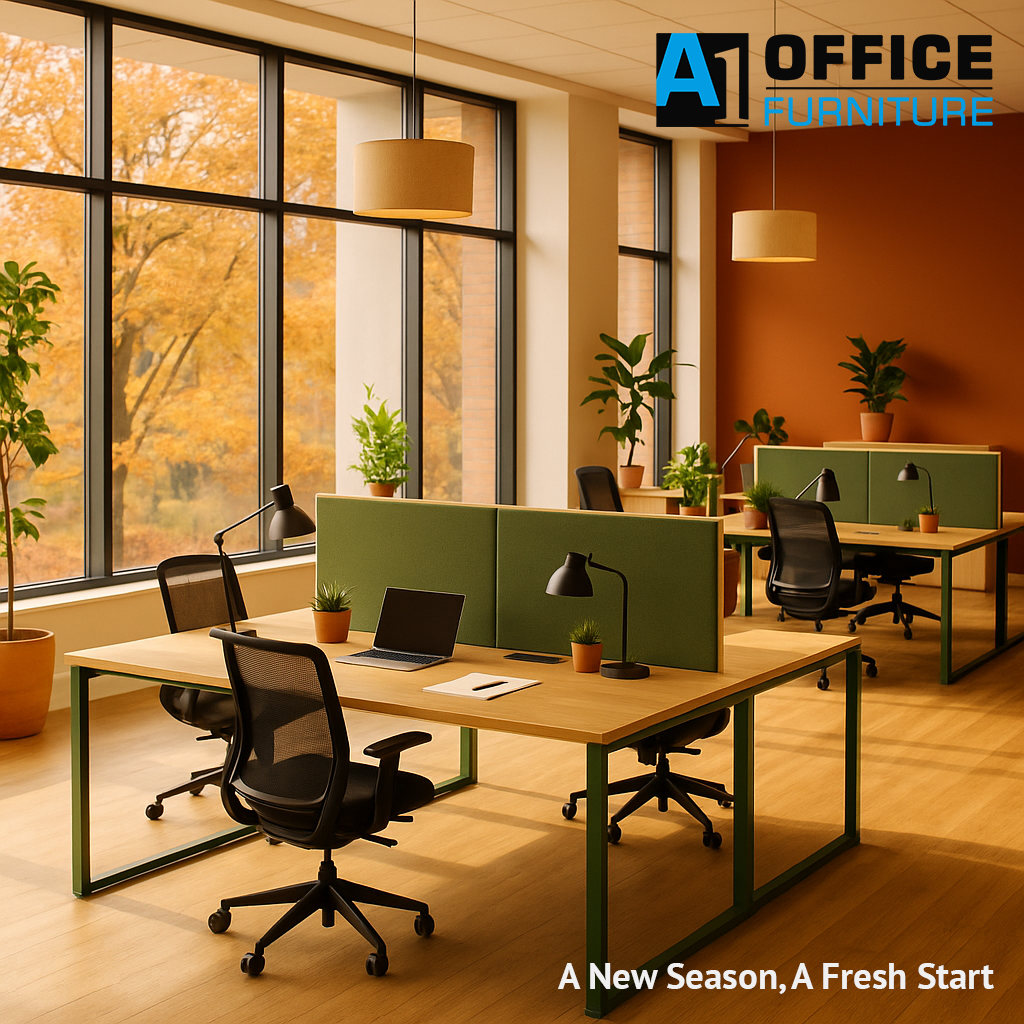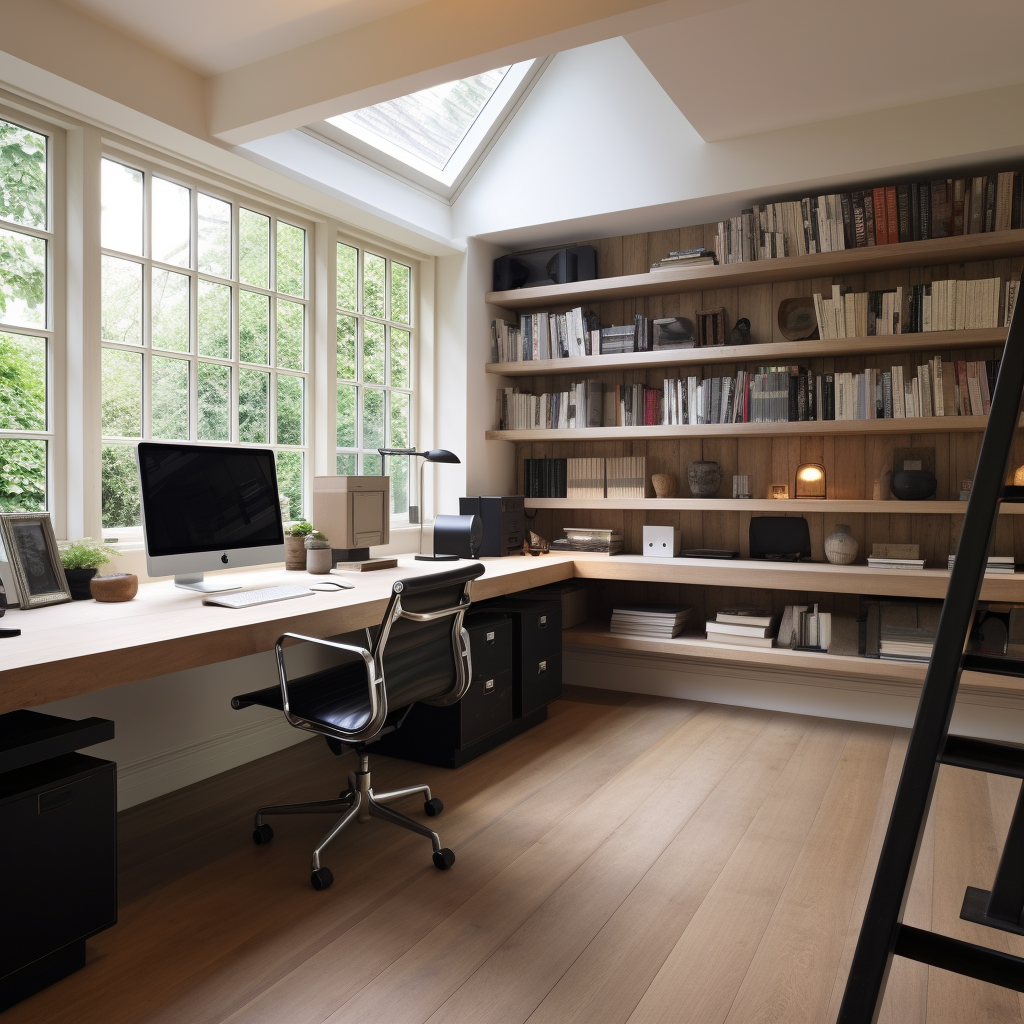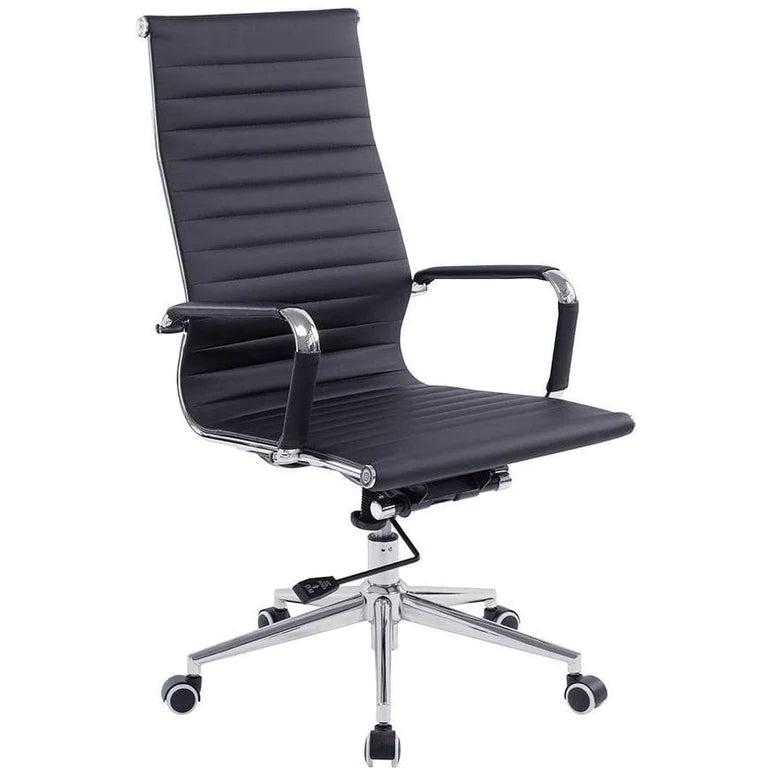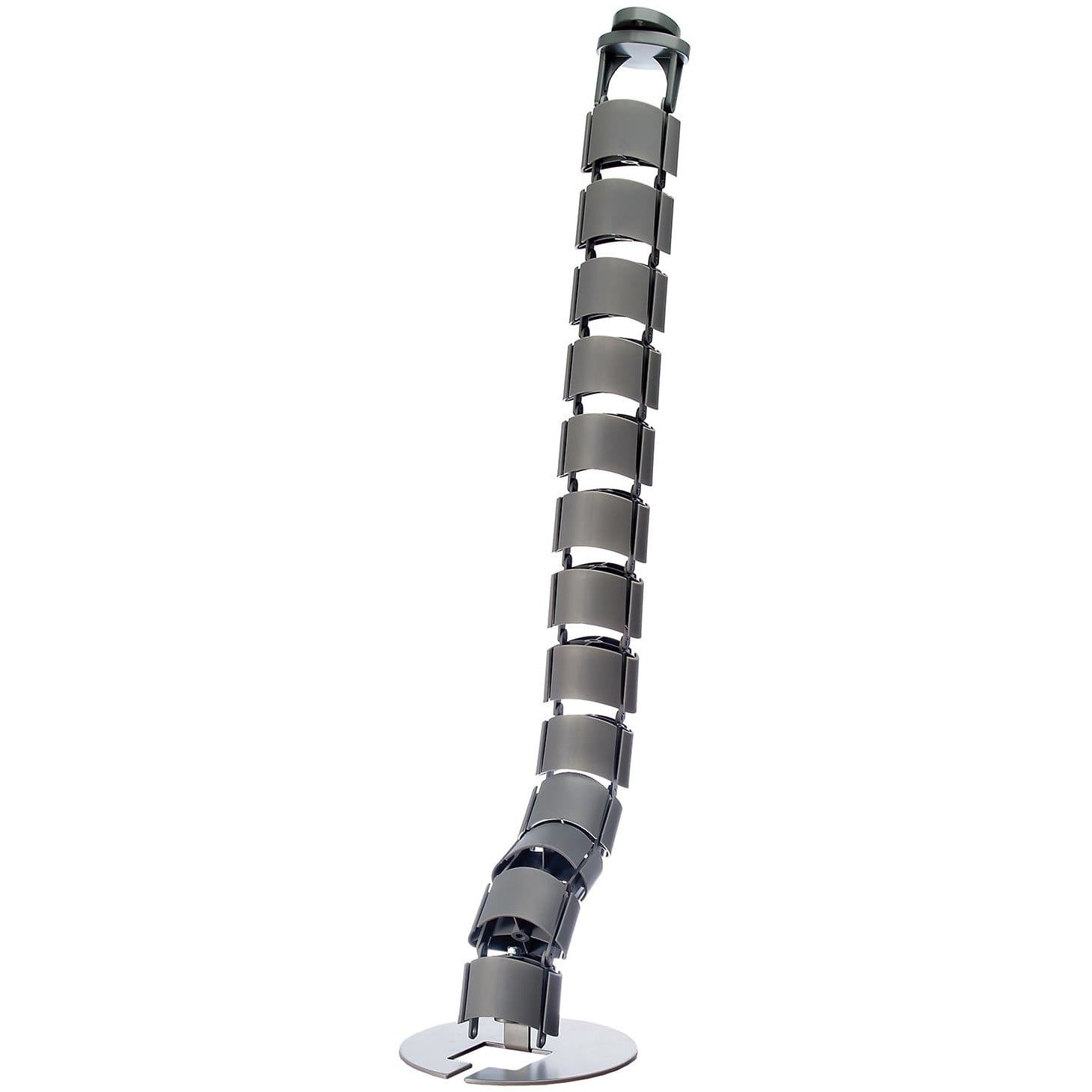
How to create your home office?

In designing your home office there is a number of factors that need to be taken under consideration. Most people have space limitations regarding their home offices. We all want our work space to be as functional as possible. We also want our home office to be presentable. Below we will try to list things worth thinking about when moving your office work to your home.
How much space will my home office take?
A bare minimum for office work is a desk and a chair. Of course, some people simply slouch on a couch with a laptop on the coffee table, but most of us find it difficult to work productively in recreational setting. So what options are there?
There are various sizes of office desks on the market. Manufacturers usually offer straight desks with a standard depth of 800mm (2.6ft), but there is also a 600mm(2ft) deep option. There is much more wiggle room with the width of a desk. In this department you can usually find desks as narrow as 800mm or as wide as 1800mm(nearly 6ft) and anything in between. Desks are usually around 730mm high.
You need something to sit on while you are working at your desk. A comfortable, ergonomic operator chair usually takes around 900mm by 900mm (3ft by 3ft) of floor space in front of the desk.
So, realistically, to create a comfortable workspace that will not impede our productivity, we should reserve a space of about 1.5 by 2 metres (5ft by 6.5ft).
If your home is not very spacious it might be wise to consider a corner desk (also called a curved desk or l-shaped desk). These desks offer extra desktop space without taking extra floor space. The floor space we're talking about is the space needed for your desk and your chair. A corner desk will indeed limit the travel space for your chair, but will let you use that space on the desk instead. This might seem counter-intuitive at first glance, but it makes perfect sense. You don't really want to ride your chair from one end of your desk to another, when you can simply turn your chair to reach your sidemost end of the desk. All manufacturers offer their corner desks in right and left hand variants with variable widths.
How to plan out your home office?
Sometimes we do not have much choice when it comes to positioning bulky items such as office furniture. But when we do, it is worth to consider important factors that greatly affect our comfort of work.
Obviously space is important, but this is rarely something that can be changed without moving houses. The choice of the room crucial, as most of us work best away form the noise of the TV, sound of the washing machine or any other common house sounds. It would be best to have a separate study in the far end of the house, but unfortunately not everyone can enjoy the liberty of that. We have to work with what we have, so lets look at aspects we can influence while preparing our home office.
Lighting
Office work although not physically difficult, uses one's mental resources. Just as in any other work, the more comfortable we are, the longer we can stay productive. Eyes are a main tool and it is not wise to put unnecessary strain on them. Good lighting plays an important role in office work and should not be overlooked. Two main sources of light are sun and electrical lights. While, as studies show, natural light is beneficent for human well-being, it often can be a nuisance when working on a computer. Sunlight, when it shines directly on your screen, makes it difficult to see. Therefore unless your window is facing north or is blinded, it is usually not the best idea to put your screen opposite your window. Turning it around will not help much, because then our eyes are exposed directly to sunlight. Positioning sideways towards the window might be a good solution, but that depends on one's particular window positioning. In general, it is usually easiest to use blinds or curtains to completely cut the sunlight and depend fully on artificial lighting.
Desk
Choosing the right desk will be the main ingredient of your work ergonomics. Go with a desk too small for your needs and you might end up constantly frustrated by your limited workspace. Choose too large and you will loose room space by gaining workspace which you are not using. The right size is different for everyone, so we can't help without knowing your particular needs, but there are some questions worth asking before choosing your home office desk:
- How many screens are you using?
- Do you use a printer?
- How are you planning to manage your cables?
- Do you use a landline phone?
- Does you work require a lot of empty space on your desk?
- Do you use large format paper documents?
- Do you need a desk lamp?
- Do you want any storage on the desktop or can it be located somewhere else?
Answering these and similar questions might give you a rough idea on what is the necessary desk size for your needs. There is also the factor of the type of desk (as mentioned before, curved desks are worth considering, if your space allows).
Chair
Your office chair has some things in common with your shoes - you will spend a lot of time in it. For this reason it is crucial to invest in a good quality, comfortable chair. Everyone has a different body, so there is no one chair good for everyone (the author personally highly despises the famed Herman Miller Aeron chair). This is why adjustablility of a chair is a significant aspect when choosing one. Good office chairs can often last 20+ years, so it can be considered a long-term investment. All the time you will spend working in your chair will influence your health. If your chair does not provide good back support, your back will let you know in a few years. If your chair seat does does not tilt to your body needs, your posture will be affected. All studies prove that prolonged sitting and sitting lifestyle in general are bad for us, so why make it even worse by sitting in a wrong chair?
Our bodies change with time so even trying a chair at the point of purchase will not be sufficient in proofing yourself against health issues originating from sitting lifestyle. What will however provide good shield against this menace is chair adjustability. Not only it will allow you to actually create the best support for your body, it will also allow you to change your support in seconds when needed. These days office chairs give users a wide range of available adjustments. The two most basic ones are a swivel and a gas-operated height adjustment. Also the tilts of the seat and the backrest quite often come as standard these days. It is also worth looking at the adjustable lumbar support - this is often ignored, while it can tremendously improve the quality of our backrest. What is also becoming common these days is the armrest adjustability - width, angle and height can be set to users requirements.
Buying a right chair for your home office might be an important decision if you consider working from home for longer than the pandemic, which seems to start showing it's end soon.
Storage
Having your work papers spread everywhere around the room is certainly how some people like to work, but for many of us it simply impractical. While this may not seem very obvious, actual office storage unit might be a great boost to the quality of our workday. Remember, these furniture pieces are usually designed with maximum utility in mind, so it might come as a surprise how good they might prove in the home office. What's there to choose from? Office furniture offers a wide range of storage solutions, however not all of them are suitable for home office. Not everyone has space for a full blown double column, four drawer filing cabinet. Such large items are very useful in actual office settings, where there is a number of people using them. For home setting, it could be very beneficent to look at under desk pedestals. These often have castors, allowing for mobility, so using them is easy and practical. They usually offer 3-4 drawers, including a filing drawer for large documents. A pedestal can also extend the desktop space, when it is matched with the desk in height.
All these aspects should be considered when creating your home office. There is some more, but we will leave it for another occasion. Do you have any thoughts or ideas on improving a home office? Let us know in the comments









